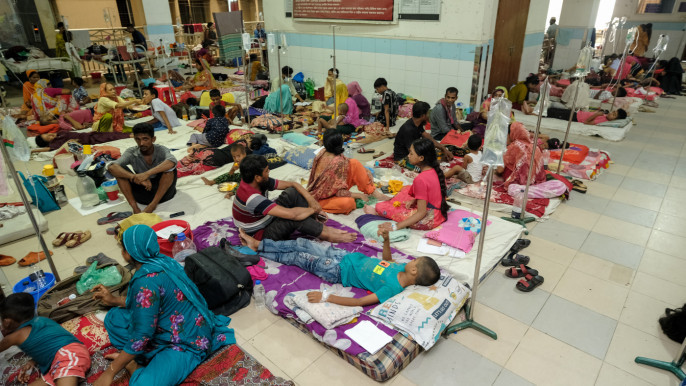Public health literacy: The key to a healthier society
Health literacy is crucial in Bangladesh's context, where more than 60% of people's first contact point is informal healthcare providers like medicine sellers and village doctors

International Literacy Day has been observed annually on 8 September since 1967. Globally, more than 763 million people still lack basic literacy as of 2020, and this issue has increased in the context of the Covid-19 pandemic. During the pandemic, poor health literacy was evident in Bangladesh and across the globe, demanding proper attention.
It is worth noting that low health literacy is not limited to low-income countries; it's also prevalent in high-income countries. A study revealed that 40% of adults in the US and UK have low health literacy, while around 60% of adult populations in Canada, Australia, the UAE, and Europe face the same challenge.
Health literacy is an everyday issue for many of us when visiting doctors, hospitals, or accompanying patients. It helps us prevent health issues and better manage our health when we are unwell. The Center for Health Care Strategies, Inc. defines health literacy as "the degree to which individuals have the capacity to obtain, process, and understand basic health information and services needed to make appropriate health decisions." Therefore, understanding the required information appropriately and making the right decisions for better health is vital.
The Global Burden of Disease study indicates a major shift in the last two decades from communicable to non-communicable diseases (NCDs) worldwide. Bangladesh faces a double disease burden, with most deaths (67%) attributed to NCDs such as heart attacks, strokes, chronic respiratory diseases, cancers, and diabetes. NCDs are mostly lifestyle-based and can be reduced through lifestyle interventions. Basic health literacy is the cornerstone for improving this dire scenario.
Health literacy holds significant functional importance, especially for patients and their families, as demonstrated during the Covid-19 pandemic. Health literacy empowers patients to manage their wellbeing by making informed healthcare decisions, enhancing their communication with physicians, and improving their ability to understand complex medical information in the chaotic medical setting of Bangladesh.
In addition to this, health literacy is crucial in the country's context, where more than 60% of people's first contact point is informal healthcare providers like drug sellers and village doctors. These providers often prescribe medicine, including antibiotics, without proper diagnosis, increasing the risk of taking the wrong antibiotic, leading to adverse health impacts and antibiotic resistance, a growing concern.
A health-literate person knows how to read labels on food and medicine, enabling them to make informed decisions about consuming products that promote their health. Conversely, low health literacy has consequences at the individual, family, and community levels, including medication errors, ineffective management of chronic conditions, longer hospital stays, poor response to public health emergencies, higher mortality rates, and more.
Poor health literacy is costly for countries, with one study estimating that low health literacy costs the US economy up to $236 billion annually, though authentic data for Bangladesh's financial burden remains unavailable.
Interestingly, education does not guarantee better health literacy. Even educated individuals may need to become more familiar with medical terminology and the functioning of the human body. When diagnosed with a severe illness, they can become confused and fearful, complicating self-care. On the other hand, rural women in Bangladesh exhibit comparatively better knowledge about exclusive breastfeeding due to awareness campaigns and community health worker visits.
Proper information is the key, as emphasised by Nobel Laureate Amartya Sen's famous saying, "Information is power." This applies to issues like smoking, where passive smokers reacted to smokers in public places when they understood the harm it posed. In public discourse, media discussions, and academic debates, it is often argued that individuals need a set of skills, including reading, writing, and communication, to function in society. Today, health issues are more complex than ever, and individuals, even with traditional literacy, may struggle to deal with their bodies, serious illnesses, unfamiliar medical terms, healthcare facilities, self-care, and community health issues.
These issues have not only individual but also social, political, economic, and environmental dimensions. Recent research and experiences, such as the Covid-19 pandemic, highlight that limited health literacy is a public health challenge in many countries worldwide.
Health literacy is vital in promoting health, from prevention to management, and it greatly impacts human lives. Health literacy contributes to disease prevention and lifestyle modification through awareness, enhances individual knowledge of health prevention, and promotes a better quality of life.
Promoting health literacy doesn't require full formal education; it requires a vision and specific programs to educate people in the community, children in school, and families. Rural areas in Bangladesh have a robust primary healthcare system, but for urban areas, pharmacies, clinics, and digital devices need to be utilised to disseminate proper information. Additionally, older adults should have access to tools that help them navigate the digital world to manage their health better.
For a healthy nation, it's high time to incorporate public health literacy into formal educational systems. We must remember that health literacy is key to understanding health issues, their complications, management, and the utilisation of health information and services. This holds especially true in the post-Covid-19 situation and for a health-burdened country like Bangladesh. Basic health literacy not only benefits individuals but also has a broad and longer-lasting impact on creating a healthier society.

Monaemul Islam Sizear is a Health System Researcher and Technical Advisor, Health System for Tuberculosis. Mohammad Aminul Islam is a Senior Lecturer of Media Studies and Journalism at University of Liberal Arts Bangladesh (ULAB).
Disclaimer: The views and opinions expressed in this article are those of the author and do not necessarily reflect the opinions and views of The Business Standard.



 Keep updated, follow The Business Standard's Google news channel
Keep updated, follow The Business Standard's Google news channel
















